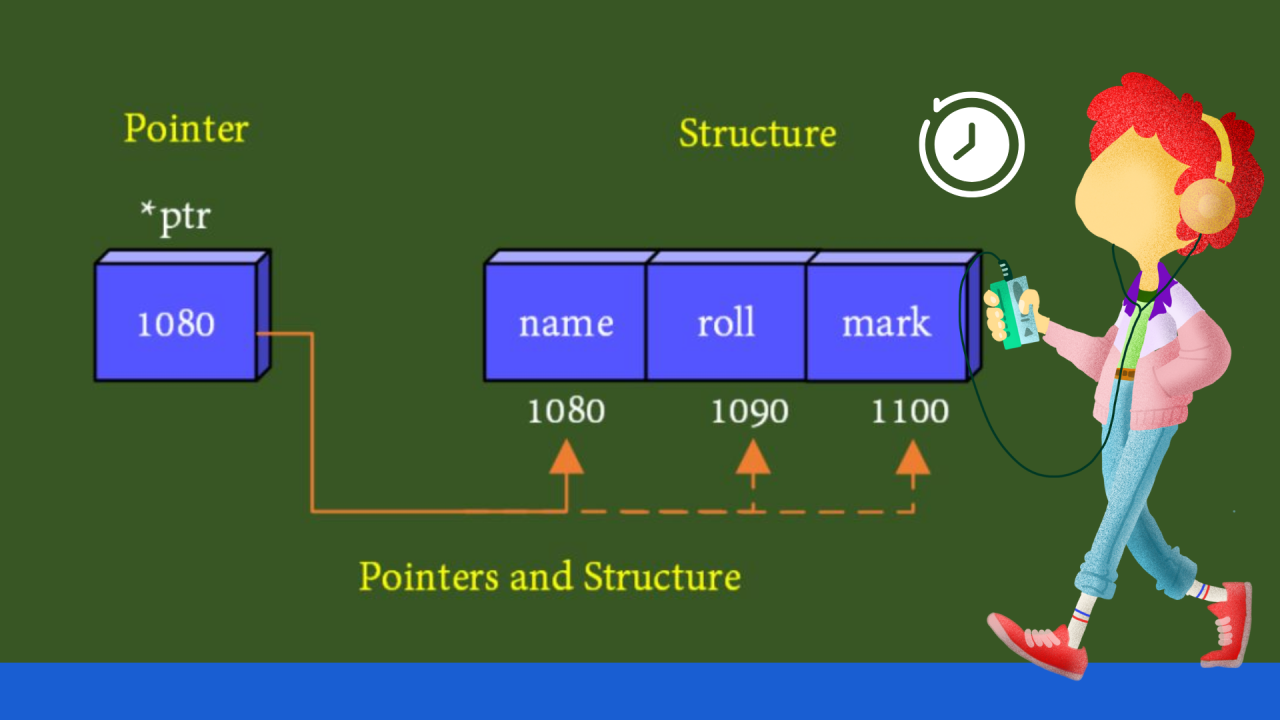
Passing Struct Pointers to Functions ? Will it boosts efficiency?
Infant Regan
Embedded Developer @ Boon R&D | Firmware Development | IoT Protocols - AWS - BLE - WiFi - FreeRTOS - DSA - ARM - ESP32 - Linux - C | End-to-End Product Development
If you've been working with C, you know it's all about control and efficiency. One of the fundamental tools in C is the struct, which lets you group related variables. But as your structs get larger and more complex, you might find yourself wondering how to manage them efficiently in your functions. Here’s where passing struct pointers comes into play. Let’s break down why and how to do it.
Getting Acquainted with Structs
Think of a struct as a way to bundle together different pieces of data that belong together. For instance, if you’re handling student records, a struct can keep all the related information together:
struct Student
{
char name[50]; // type character
int age; // type integer
float gpa; // type float
};
This Student struct holds a name, an age, and a GPA, making it easier to manage a student's data in one neat package.
The Traditional Way: Passing Structs by Value
When you pass a struct to a function the traditional way, C makes a copy of the entire struct. For small structs, this isn't a big deal, but for larger ones, it can slow things down. Consider this below function:
void printStudent(struct Student s)
{
printf("Name: %s\n", s.name);
printf("Age: %d\n", s.age);
printf("GPA: %.2f\n", s.gpa);
}
Every time you call printStudent, C creates a copy of the Student struct. Not very efficient, right?
The Efficient Way: Passing Struct Pointers
Instead of copying the entire struct, you can pass a pointer to it. A pointer is just the memory address where the struct is stored, which is much smaller and quicker to pass around. Here’s how you can change printStudent to use a pointer:
void printStudent(struct Student *s)
{
printf("Name: %s\n", s->name);
printf("Age: %d\n", s->age);
printf("GPA: %.2f\n", s->gpa);
}
Making the Switch: Passing Pointers to Functions
To call this function with a pointer, you use the address-of operator (&):
领英推荐
int main()
{
struct Student student1 = {"Alice", 20, 3.9};
printStudent(&student1);
return 0;
}
Now, printStudent(&student1) passes the address of student1 instead of a copy of the entire struct, making your program faster and more memory-efficient.
Directly Modifying Struct Data
Another benefit of passing pointers is the ability to modify the original struct data directly within the function. Here’s an example:
void updateGPA(struct Student *s, float newGPA)
{
s->gpa = newGPA;
}
int main()
{
struct Student student1 = {"Alice", 20, 3.9};
updateGPA(&student1, 4.0);
printf("Updated GPA: %.2f\n", student1.gpa); // Outputs: Updated GPA: 4.00
return 0;
}
In this case, updateGPA changes the gpa field of student1 directly. No need to return a new struct or deal with copies—just straightforward updates.
Tips for Using Struct Pointers
void printStudent(const struct Student *s);
2. Check for NULL Pointers: Always check if the pointer is NULL before using it to avoid crashes:
void printStudent(const struct Student *s) {
if (s == NULL) {
printf("Invalid student record.\n");
return;
}
// rest of the function
}
3. Clear Documentation: Pointers can make code harder to read, so be sure to comment and document your code well.
Wrapping Up
Passing struct pointers to functions is a smart way to make your C code more efficient. It reduces memory usage and speeds up function calls, especially with larger structs. Plus, it allows you to modify the original data directly. Try incorporating this technique into your projects to see the benefits firsthand!